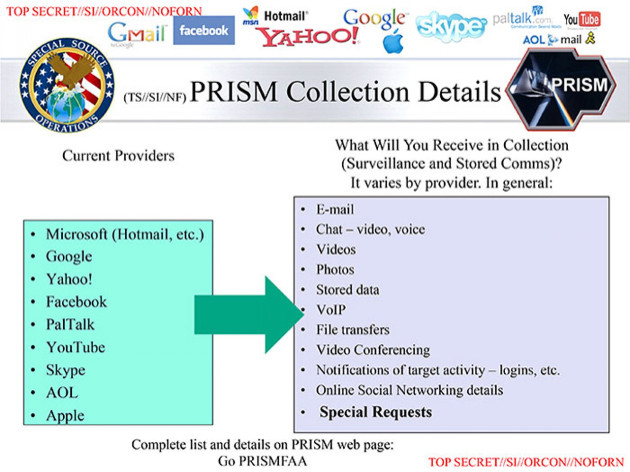Google Seeks To Stop Gag Order That It Says Prevents Disclosure Of Prism-related User-Data Requests And Other Details Of Its Relationship To Secretive Monitoring Of Internet Communications

Leaked documents claiming the U.S. government is behaving less like Uncle Sam and more like Big Brother by monitoring electronic communications clearly show that the National Security Agency has access to email, logins, video chats and other types of stored and ostensibly secured data passing through U.S. servers.
Now, Google Inc. (NASDAQ:GOOG) is demanding the right to tell the public how many user accounts have been targeted for secret data-access requests through the NSA’s “PRISM” program, and it wants to be able to outline the extent of the company’s role in the secretive operation.
Google made the request in a motion filed at the Foreign Intelligence Surveillance Court, which was obtained by CNN. “Google seeks to increase its transparency with users and the public regarding its receipt of national security requests, if any,” Google said in the petition.
The Mountain View, Calif.-based Internet search giant is claiming it has a First Amendment right to disclose this information, but the Federal Bureau of Investigation and the U.S. Justice Department disagree and say such disclosures would be a violation of a gag order.
Ever since NSA contractor Edward Snowden, who is currently in hiding, leaked the compromising information earlier this month -- news that was first published in The Guardian and the Washington Post June 6 -- the companies named in the documents have been scrambling to assure customers that their private data is safe from spying eyes.
So far, most of the companies listed in the PRISM PowerPoint slide above have issued statements saying more or less the same thing: that they don’t provide private data to the government except when they feel compelled to comply with the law. Apple Inc. (NASDAQ: AAPL), for example, says it provides no personal data without a court order, while Facebook Inc. (NASDAQ:FB) says it scrutinizes all federal requests and complies “only to the extent required by law.”
These companies have also started to reveal numbers.
On Friday Facebook said it received between 9,000 and 10,000 user-data requests (through warrants, subpoenas or other court orders) affecting 18,000 to 19,000 accounts in the six months ended Dec. 31, 2012. On Monday, Apple said it has received between 4,000 and 5,000 user-data requests affecting 9,000 to 10,000 accounts between Dec. 1, 2012, and May 31.
© Copyright IBTimes 2024. All rights reserved.






















